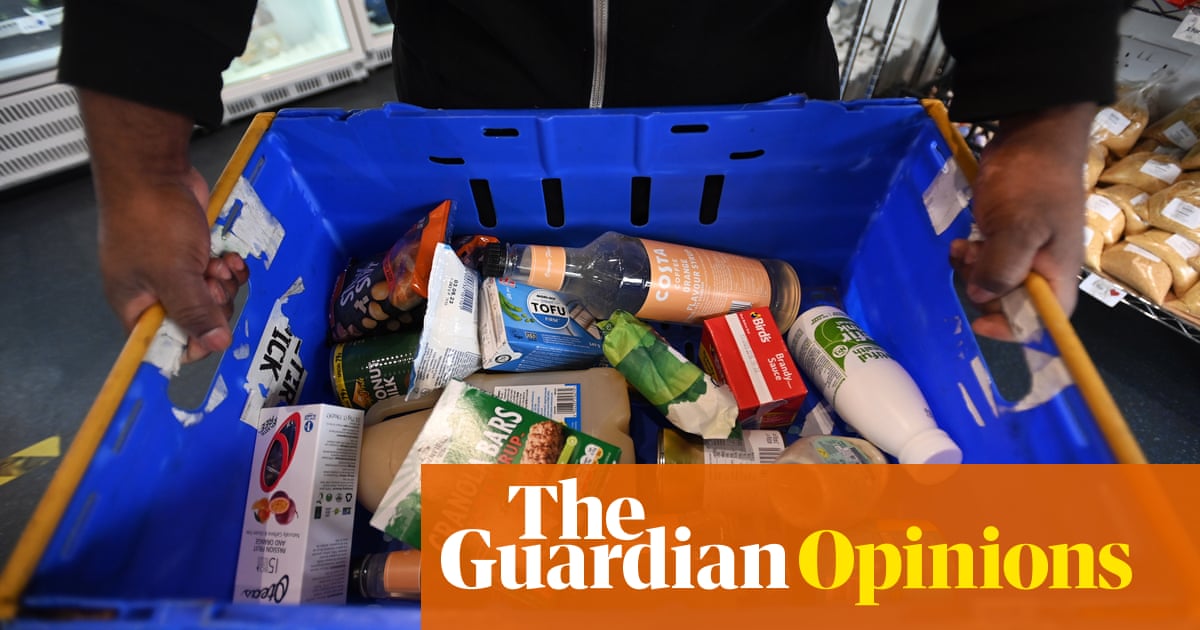As honeymoon periods go, Keir Starmer’s has been mostly chocolates and flowers. Over the first 10 days in office, the new prime minister has been gifted a jump in personal poll ratings, a Nato summit, and the rare national optimism that comes with England making it to a Euros final.
On Wednesday, though, watch out for the first marital row. As the government sets out its inaugural king’s speech, a Labour backbencher, Kim Johnson, will throw the leadership a test: an amendment calling for the two-child benefit limit to be scrapped.
The policy was a conspicuous absence in the party’s election manifesto, and pressure is mounting on Starmer to repeal the 2017 cut, as figures last week showed a record 1.6 million children have now been hit by the policy, with a staggering 93% of affected parents less able to afford food.
[…]
That the chancellor, Rachel Reeves, will reportedly use Wednesday to enshrine her “fiscal rules” on borrowing into law – a plan that is widely seen as at best, arbitrary and at worst, nonsensical – will only deepen the cracks. The message to restless backbenchers is loud and clear: there is no room in the king’s speech to commit to feeding hungry children – but plenty for rules that’ll make it harder to raise the cash to do it.In many ways, Labour’s stubbornness over the two-child limit shows the stranglehold “fiscal responsibility” has over future policy. At this point, the doctrine is less a helpful bit of discipline and more reminiscent of a cult, a dead-eyed chant that increasingly blinkers the leadership from common sense. Under this hyper self-restraint, even a highly cost-effective move that would quickly lift hundreds of thousands of children above the breadline is dismissed. What’s left is a shallow senselessness: a “child poverty” strategy that refuses to scrap a key driver of child poverty.
[…]
From bankrupt councils to NHS waiting lists and overcrowded prisons, Labour is effectively in a state of cognitive dissonance: it acknowledges the scale of the crises that the party has inherited from the Conservatives and is positioning itself as the fixer, but falls short of committing to spend the money needed to do it. Starmer’s recent pledge to give Ukraine £3bn a year “for as long as it takes” shows there is money available if the government chooses to find it. Not all spending is treated equally: to some, using resources to boost health or the benefits bill is wasteful, while funding defence is prudent.In lieu of injections of cash, Labour is focusing on “reform” as a means for renewal: from rights for workers to the deregulation of housebuilding and an emphasis on preventive healthcare. That’s fine. But in politics, much like in life, there really are some problems that can only be solved by writing a cheque.
The electorate, tired of a country where nothing seems to work any more, appear to understand this more than those they’ve elected. The latest Ipsos poll shows that of people who voted for Labour this month, more than three-quarters expect the government to spend more on public services, as well as improve living standards for people on low incomes.
The quirk of Starmer’s majority is that he has at once a strong mandate and no real mandate at all. A manifesto designed to be as unthreatening and vague as possible was effectively a Rorschach test: voters saw what they wanted to see. The many non-voters, meanwhile, saw nothing at all. As prime minister, Starmer – managerial, efficient and nonideological to the point of pride – is a political blank canvas, a mood board for the public to project their varied expectations on. That hope is in limited supply and cynicism high does not mean there is not a deep desire out there for change. Few people voted for more food banks.
In the coming months, when the public grow impatient and the honeymoon period starts to wane, Starmer will have to make his peace with taxing the super-rich, borrowing or both. The alternative is a rudderless society, perpetually stuck in the ashes of Conservative decline, and a Labour party losing ever more alienated voters to the Greens, independents or Reform. Winning power is one thing, knowing what to do with it once you have it is quite another.
I didn’t realise that the bill which capped child benefits at 2 children was only actionable for any children born after the bill came into law. I’d been imagining that it was a barbaric cut-off where people on benefits with more than 2 children suddenly found their benefits being viciously slashed but apparently it does not apply retrospectively.
I’m not sure about it anymore. It sounded completely draconian before but the way it’s been implemented sounds a lot more fair than the media are portraying it.
Ideally the cap shouldn’t exist but I can imagine other issues that are more pressing for the government to allocate funding to given the squeeze the entire country is feeling at the moment.



